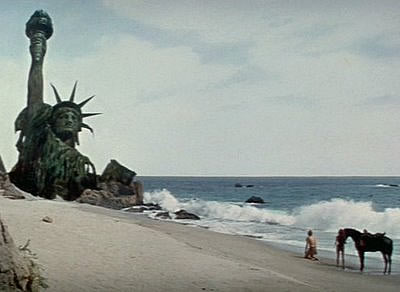Posted on 11/08/2011 5:37:12 PM PST by Pan_Yan
New evidence of a lost civilization in an area of the Sahara in Libya has emerged from images taken by satellites.
Using satellites and air photographs to identify the remains in one of the most inhospitable parts of the desert, a team from the University of Leicester in England has discovered more than 100 fortified farms and villages with castle-like structures and several towns, most dating between AD 1 to 500.
"It is like someone coming to England and suddenly discovering all the medieval castles. These settlements had been unremarked and unrecorded under the Gadhafi regime," said project leader David Mattingly, professor of Roman archaeology at the university. The fall of the regime has opened up Libya to more exploration by archaeologists of its pre-Islamic heritage.
These "lost cities" were built by a little-known ancient civilization called the Garamantes, whose lifestyle and culture was far more advanced and historically significant than ancient sources had suggested.
(Excerpt) Read more at foxnews.com ...
Ping.
Spin, the third oldest profession.
Thank you for posting this--very interesting.
Interesting stuff. Thanks for the post.
for later
You're very welcome.
Nomads and troublemakers? Ancestors of the Occupy crowd.


>>>It’s ironic that the Romans referred to many others as “barbarians”
Didn’t the Greeks invent the word “barbarians” ?
Nope, the Romans coined it referring to the jibberish that the Romans heard when the Germanic tribes spoke, “bar, bar, bar, bar.”
The fall of the regime has opened up Libya to more exploration by archaeologists of its pre-Islamic heritage.
Homer doesn't have the word barbaros but he does have barbarophonos, "speaking a foreign language," applied to the Carians, in Iliad 2.867. The earliest authors to have the word barbaros are the philosopher Heraclitus and the poet Aeschylus (in his play The Persians dated to 472 B.C.).
Herodotus mentions the Garamantes briefly a couple of times in his account of Libya:
4.174-175: Further inland, to the south of this region, in the part of Libya that is teeming with wild animals, are the Garamantes, who shun all human intercourse and contact. They have no weapons of war and no knowledge of ways to defend themselves. The Garamantes are the neighbors of the Nasamontes inland...
4.183-184: Another ten days' journey after Augila there is a third hill of salt, with water and a great many fruit-bearing palm-trees...A very large tribe called the Garamantes lives here. They put a layer of soil on top of the salt and so have land to cultivate...The Garamantes use four-horse chariots to hunt the cave-dwelling Ethiopians, because the cave-dwelling Ethiopians are the fastest people of any of whom we have been brought a report....Another ten days' journey further on from the Garamantes is another hill and water, again with people living in the vicinity. This is a tribe called the Atrarantes...
(Translation by Robin Waterfield, in the Oxford World's Classics edition.)
The Latin part of the origin is “barbarus,” but it came from the Greek “barbaros,” which means “foreign.”
Then why weren't they called bierbarians?
Barbarian essentialy is Greek for someone who is not a member of a Greek city state
incidently the Polish word for Germans is Niemcy, derived from the word for “mumblers” as to the ancient Polanians it probably sounded like the germans were mumbling.
And for some reason they didn't thrive and spread over the earth?
Disclaimer: Opinions posted on Free Republic are those of the individual posters and do not necessarily represent the opinion of Free Republic or its management. All materials posted herein are protected by copyright law and the exemption for fair use of copyrighted works.